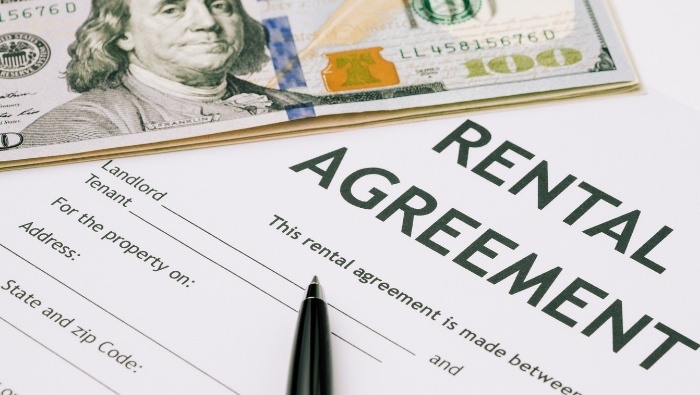Taking in a Renter for Extra Cash

Are you strapped for cash and looking to generate additional income? Find out if renting out space in your home is a good option for you.
As empty nesters rattling around in a big three-story home (the ground floor of which is a finished basement), my husband and I decided that renting out the downstairs of our home would be a good way to supplement our income. Our basement area is almost a self-contained apartment with its own living space, bathroom and entrance. The only thing lacking is a kitchen.
Things to consider before taking in a renter for extra cash
Having had two different renters now, we have learned a few things you may want to consider before renting out extra space in your home.
1. Rent to someone you know or who knows someone you know
If at all possible, rent to someone you know or who comes recommended by a friend or business acquaintance. Renting to complete strangers is much riskier since you know little about them. Verify that the renter is employed and has his/her own transportation. Had we verified this information, we could have avoided an awkward situation with our first renter who quickly ran short on cash and began needing rides.
Start living better for less.
Subscribe to get money-saving content by email that can help you stretch your dollars further.
Twice each week you'll receive articles and tips that can help you free up and keep more of your hard-earned money, even on the tightest of budgets.
Subscribers receive a free copy of our eBook Little Luxuries: 130 Ways to Live Better for Less.
We respect your privacy. Unsubscribe at any time.
2. Get good references
Anyone can list a friend who may stretch the truth to help out a buddy, but an employer or former landlord will undoubtedly tell you the truth regarding how responsible their employee or former renter was. You may want to require that one of the references needs to be an employer, a former employer, or a former landlord.
3. Have a rental agreement
Draw up a rental agreement that specifies the length of time the contract is good for. You might wish to start out with a three- to six-month lease. This will allow both you and your renter time to adjust. If, after the allotted time, you find things are not working out, then you won’t have to grit your teeth to get through several more months of tolerating each other.
4. Require a deposit
Require a deposit and make certain your rental agreement makes it clear that damage to your rented space will mean the renter will forfeit the deposit. Even though we specified a no smoking policy, a former renter had a visitor who smoked in the room and burned a hole in the carpet.
5. Get an emergency contact
Require that your renter provide you with at least one emergency contact. When our first renter, who admittedly was in recovery, disappeared without a word, we thought something had happened to him, but had no number to call. (We later found out that he had relapsed and gone on a drinking binge.)
6. Determine what perks the renter gets
Will he/she have access to your kitchen or your washer and dryer? Will you share common areas like your dining room and living room? Will the renter be allowed to hook up to your cable, dish network, or Internet?
7. Know the line between renter and landlord
Renting out space in your home is not the same as renting a full-fledged apartment. With an apartment, you may never see your renter. When someone lives in your home, you may encounter each other daily. Under these circumstances, the landlord/tenant relationship can be more complicated than if someone is living separately. You get to know each other and care for each other and the line between renter and landlord can become blurred. You want to make sure you can cohabitate with as little conflict as possible.
Clearly established rules and expectations can make the difference between a miserable experience and a happy one. With a little preplanning, you can create a win-win situation for you and your renter.
Reviewed August 2021

Subscribe to The Dollar Stretcher, our free twice-weekly newsletter aimed at helping you live better for less on the money you already have!
Subscribers get a copy of our ebook Little Luxuries: 130 Ways to Live Better...For Less for FREE!



